In July 2021 we gave a plenary at the inaugural Society for Open, Reliable, and Transparent Ecology and Evolutionary Biology (SORTEE) conference. SORTEE is a research community organization working to improve reliability and transparency through cultural and institutional changes in ecology, evolutionary biology, and related fields broadly defined. SORTEE is doing important work elevating open science within environmental science, and it was an honor to present about Openscapes at their inaugural conference. It was also a nice moment to reflect about Openscapes, as this year marks ten years of Ocean Health Index assessments, three years since Julie’s Mozilla Fellowship that launched Openscapes, two years after the useR!2019 keynote and one year after the ESIP plenary where we’ve been able to iteratively describe the vision and momentum of Openscapes. This post is some highlights about this 30-minute talk where we shared what we’ve been learning through Openscapes and working with Champions Cohorts together this past year and how we are approaching scaling and movement building going forward.
Quick links:
- plenary video
- plenary slides
- artwork by Allison Horst (available for download and reuse)
- SORTEE
- #SORTEE2021 on Twitter
Openscapes: Better Science for Future Us
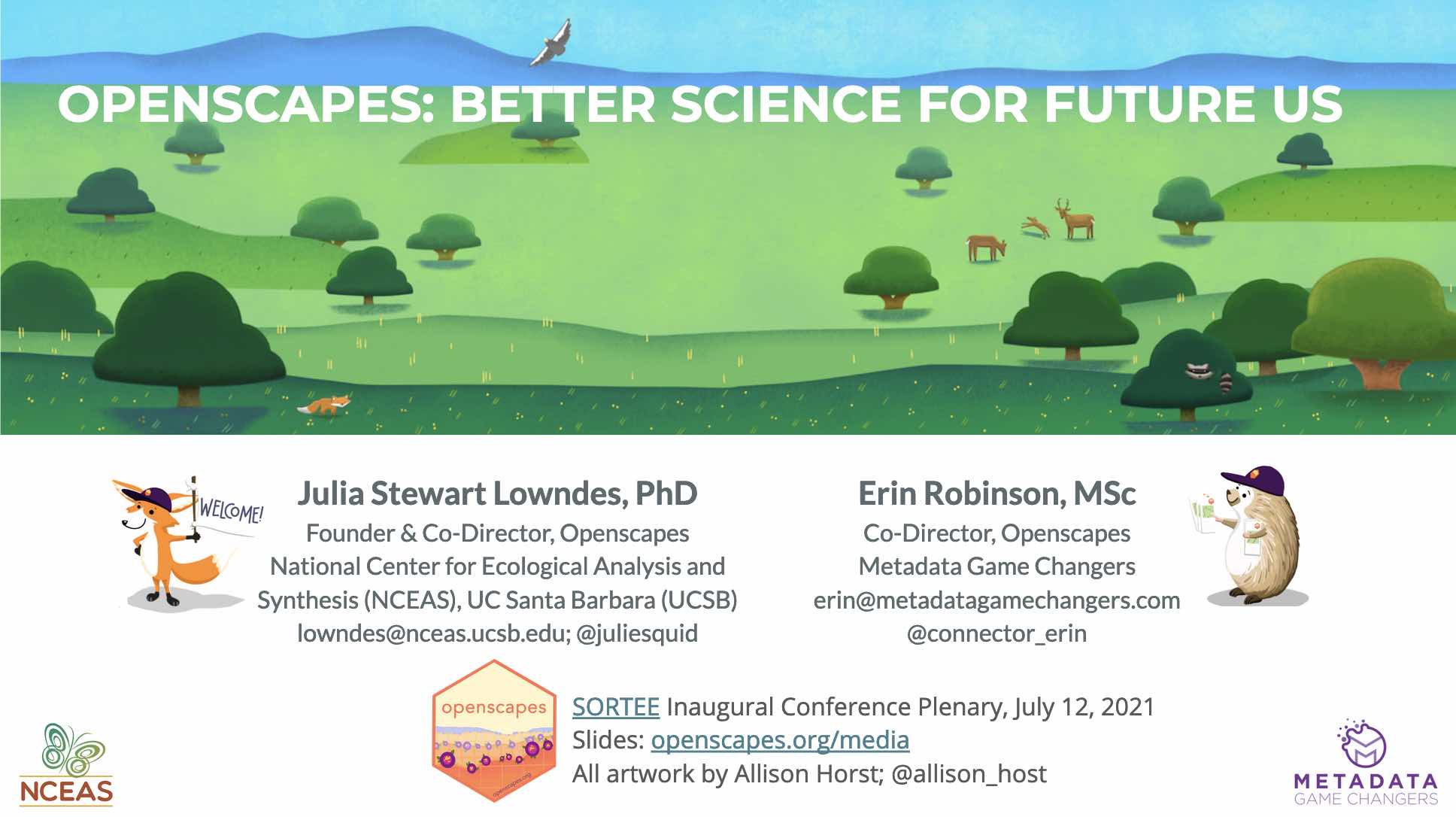
Our plenary talk was called “Openscapes: Better Science for Future Us”. We started off by defining “better science” as science that is more open, reproducible, efficient, and more diverse, equitable, inclusive, and kind. Better science is for “Future Us”: the idea of our teams, and communities, and who will be joining and continuing our work, whether that is next hours, weeks or decades. Future Us is an important mindset for science and society at large, and particularly important in environmental science, because we are tackling huge issues like climate change and climate justice, and we can’t do this alone. Better science for future us is also a real investment, particularly for data-intensive research — this is true in terms of time, money, skillbuilding and safety, so that people are supported to do their best work.
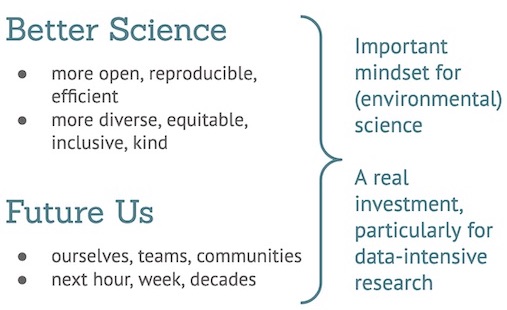
We shared about how we built experiences from the Ocean Health Index, the R community, and Mozilla, into the design of Openscapes. This includes focusing first on teamwork and trust, then on co-creating common process, and upskilling with shared technology. Identifying the common parts of data analysis through Hadley Wickham’s conceptual diagram of data science and using common tools like RMarkdown helped us reimagine what we could do together for our science (Lowndes et al. 2017).
Openscapes is designed to empower other researcher teams do this too, no matter where they are starting from.
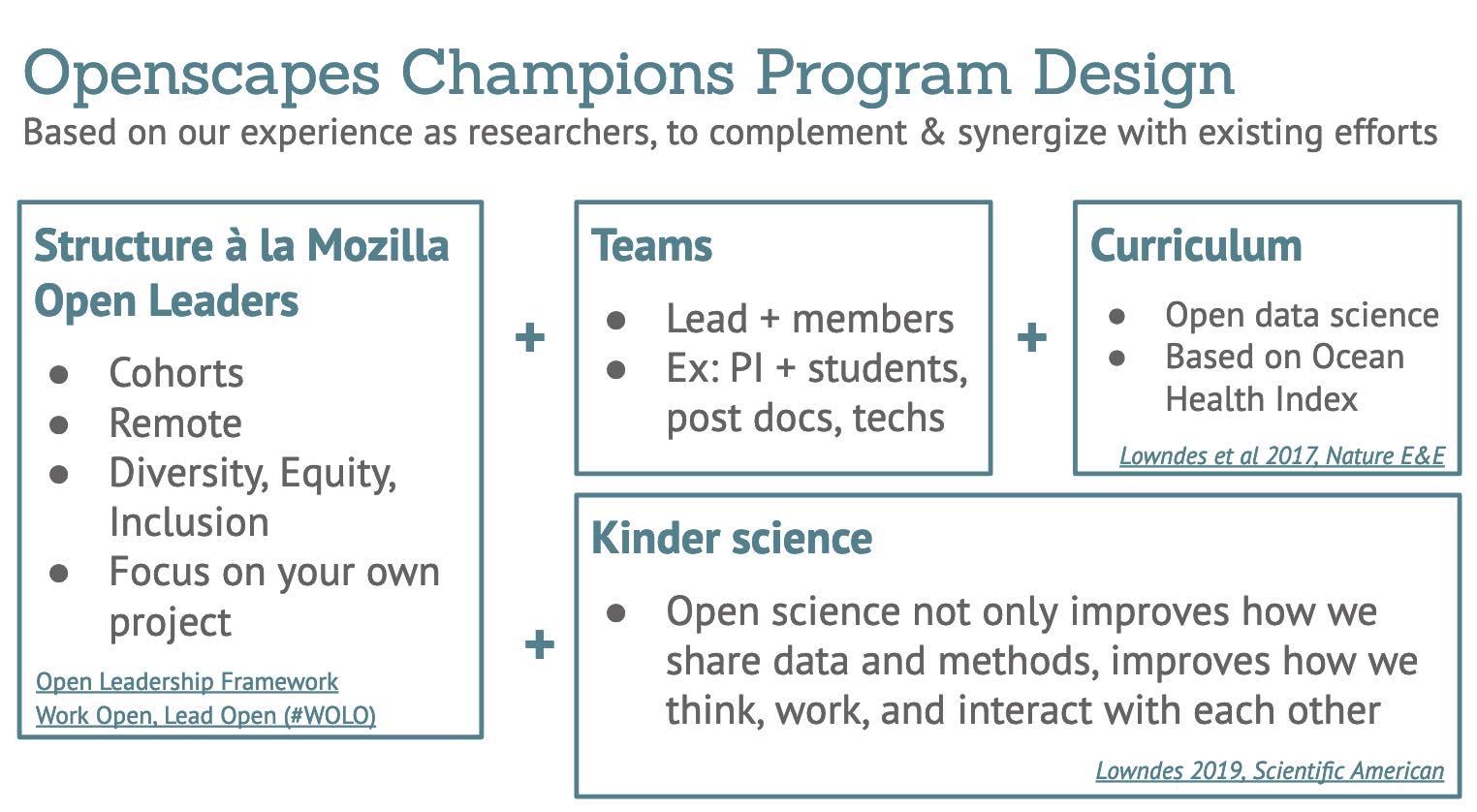
In the Champions Program we help teams focus on the common. This means helping normalize talking about data by creating place and space to do so; helping identify and address shared needs through exploring existing tooling, practices, and examples relevant to their own communities; and helping to think ahead for Future Us in terms of reproducibility, diversity, equity, and inclusion, and role-modeling kinder science and creating the culture we want to be a part of (Lowndes et al. 2019).
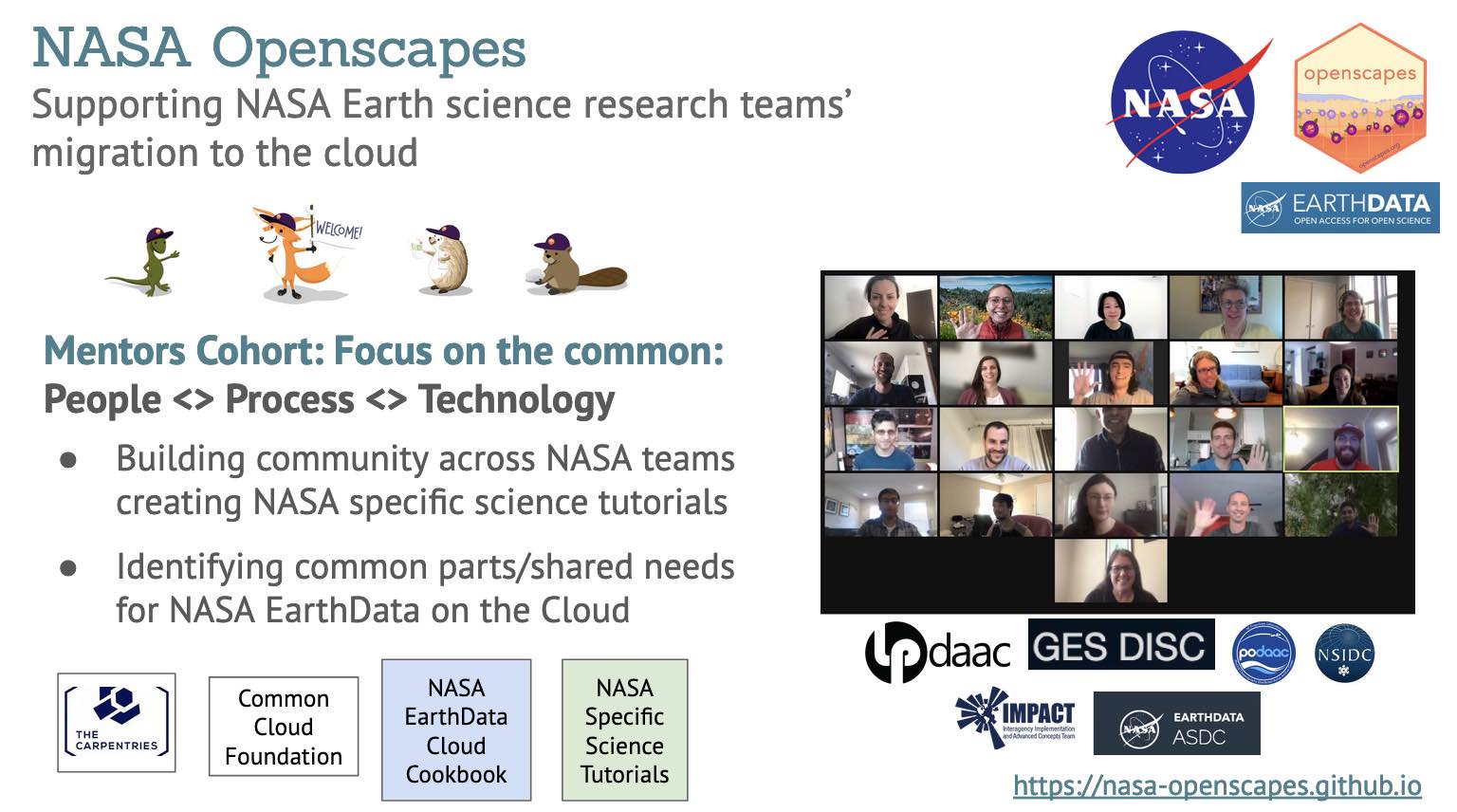
Some really exciting work we’re doing is working with folks with NASA to help support NASA Earth science research teams’ migration to the cloud. Six teams at NASA are participating in our experimental Mentors Cohort to focus on common needs that researchers have when accessing NASA Earth data on the cloud. We are learning so much working with these awesome teams and identifying common place and space to address these shared needs. This work is part of our vision for scaling Openscapes: to help folks become Openscapes Mentors as part of their jobs so that they can use this approach to support their communities with what they need to learn. We’re co-creating the “NASA Earthdata Cloud Cookbook” using Quarto, which builds from what RStudio learned from RMarkdown and streamlines collaboration across R, Python, and more.
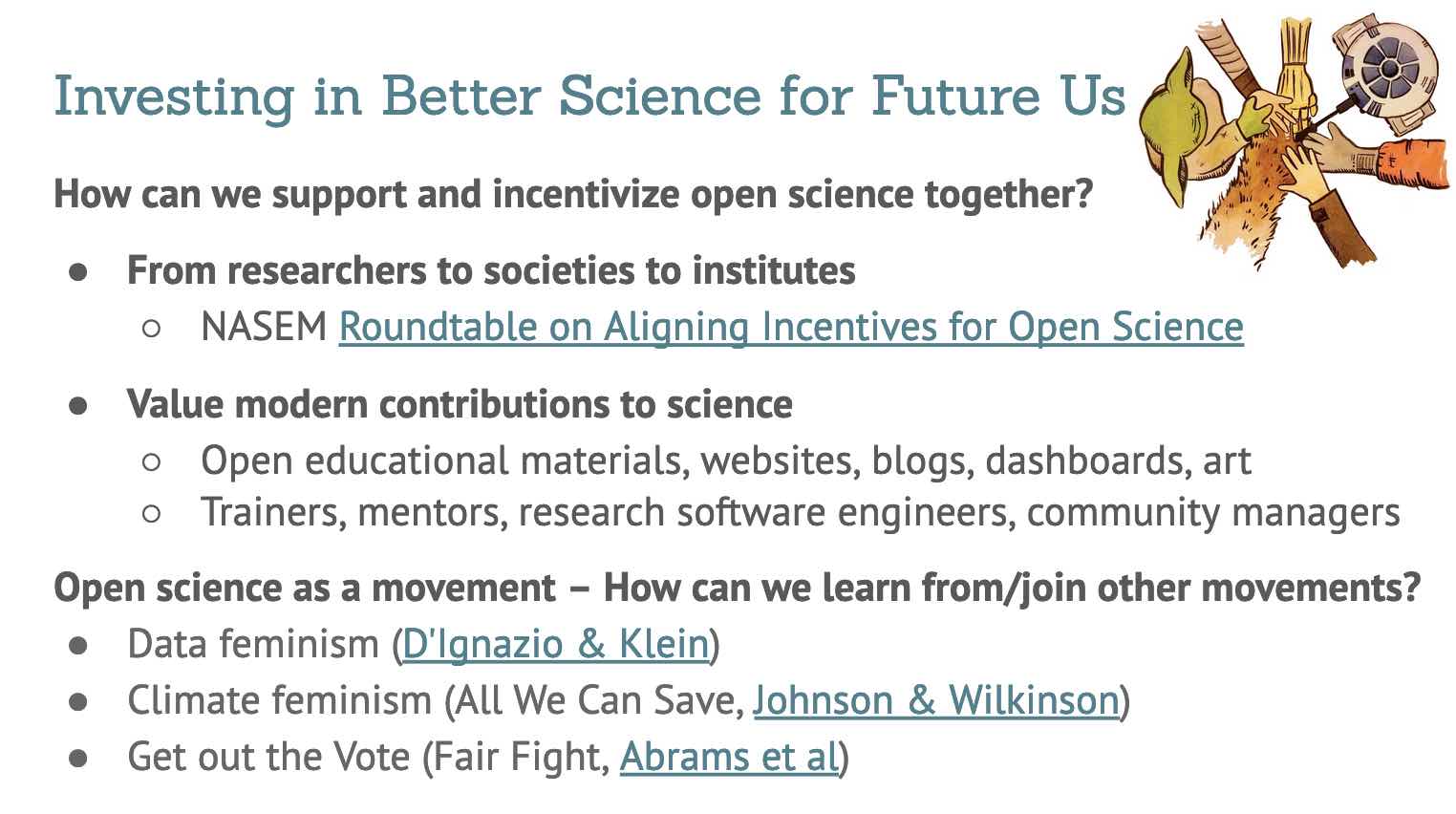
Going forward, we are interested in how can we support and incentivize open science together. How do we value modern contributions to science — both through products like open educational materials, websites, blogs, dashboards, art, software, and through people like trainers, mentors, research software engineers, community managers? How do we support the people who are already leaders in this space doing this work and encourage others as well? We are looking forward to continuing this work with SORTEE folks and beyond.